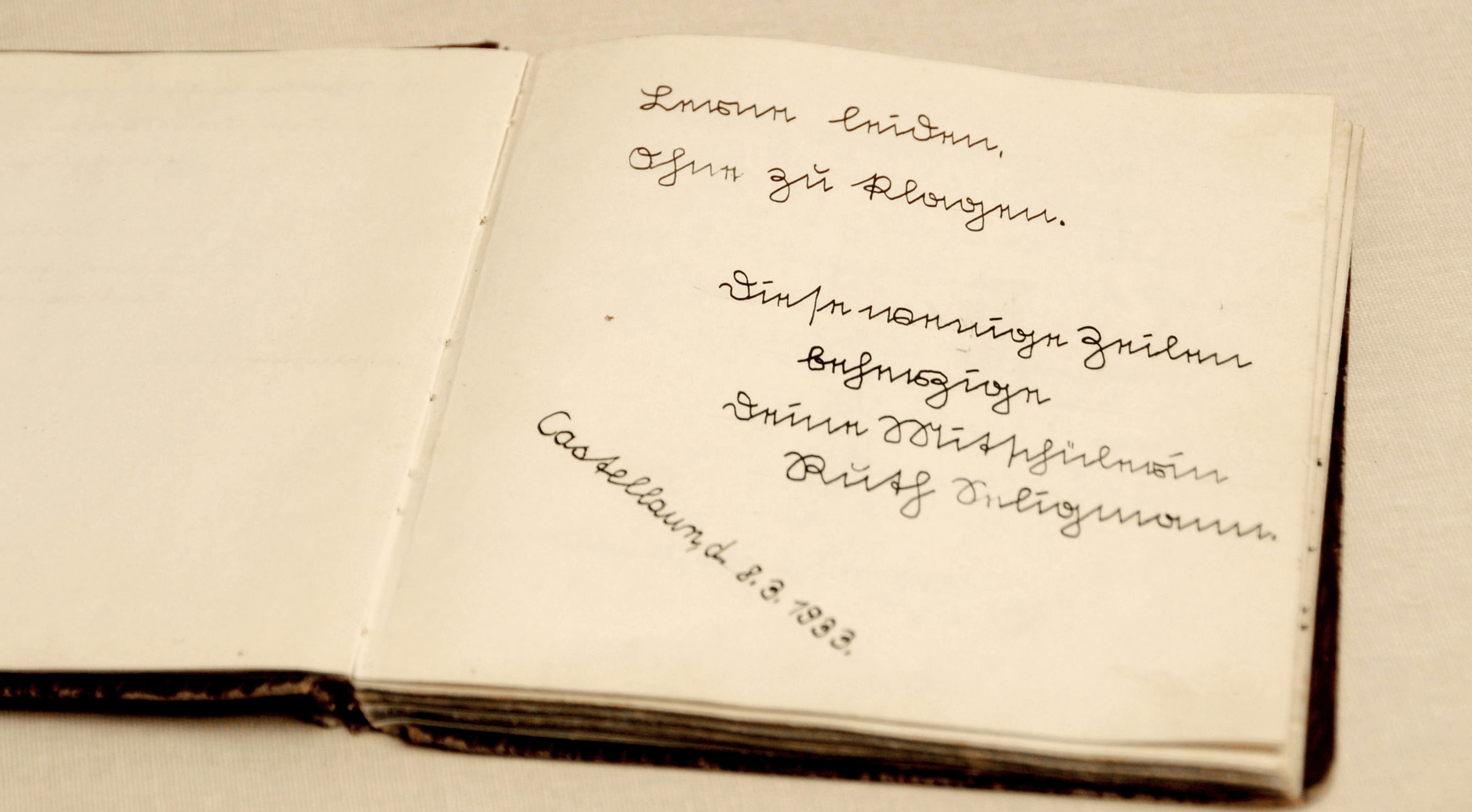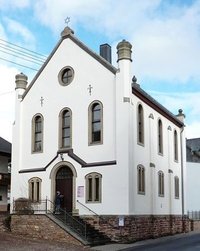Johanna Schug kept this friendship book as a young schoolgirl in Kastellaun. Among other posts, the pages are filled with entries from her fellow Jewish students and friends from Kastellaun. It also contains these words shared by her classmate, Ruth Seligmann:
Learn to suffer without complaining / Take these few lines to the heart / Your classmate, Ruth Seligmann / Castellaun, the 8th of March 1933.
Ruth Seligmann, born in Kastellaun in 1920, was the youngest daughter of Heinrich Seligmann and his wife, Johanna née Hirsch, from Bruttig on the Mosel (river). They also had four other children: Elfriede, Hertha (1910), Kurt and Hans.
Their parents purchased an exposed timber house on the Marktstraße in Kastellaun in 1919, where they opened a shoe retail and repair shop, which grew into one of the largest shoe shops in the Hunsrück region. Once the National Socialist (NS) regime assumed power, however, boycotts were instituted against Jewish businesses, including the “Schuhhaus Seligmann”. This development coupled with increasing competition forced the Seligmanns to abandon their business completely and, in 1935, move the family to Vallendar to the parents-in-law of their oldest daughter.
Ruth Seligmann was able to travel to England with a children’s transport organized by the International Red Cross. She eventually married a man from Poland, with whom she later emigrated to the USA.
Her siblings, Elfriede, Hans and Kurt, were also able to find refuge abroad and survived the Holocaust. Their father stayed with sister Hertha and her family in Germany, however, and were deported with a transport from Koblenz to the Izbica ghetto in 1942, from where they sent a final message, reporting that they were still „all together“.
Entries by other Jewish classmates and friends from 1933 can also be found in Johanna Schug’s friendship album. Following her death in 2019, the Kramb family from Kastellaun conveyed the album to the “Förderkreis” of Synagogue Laufersweiler.
en

